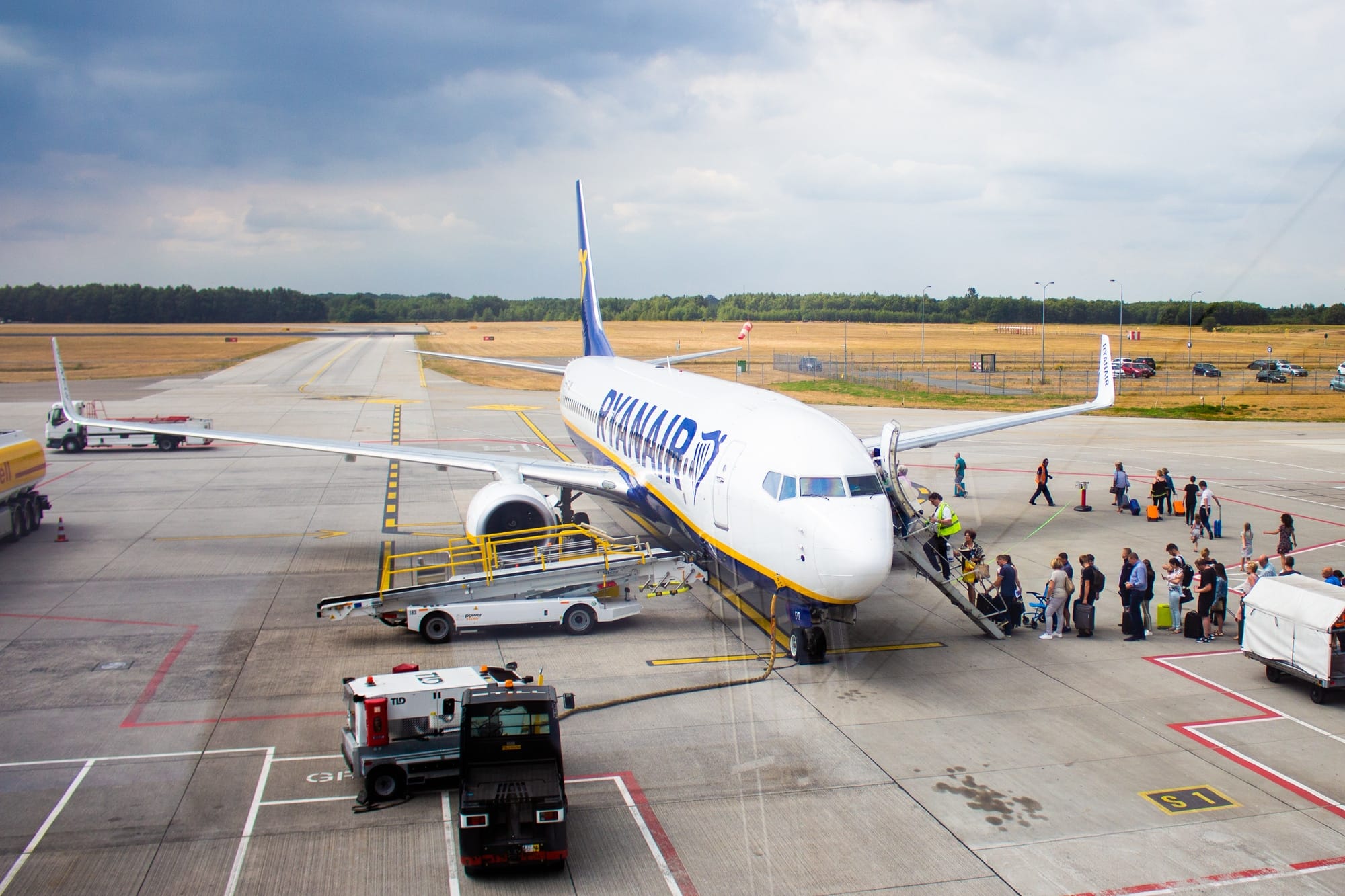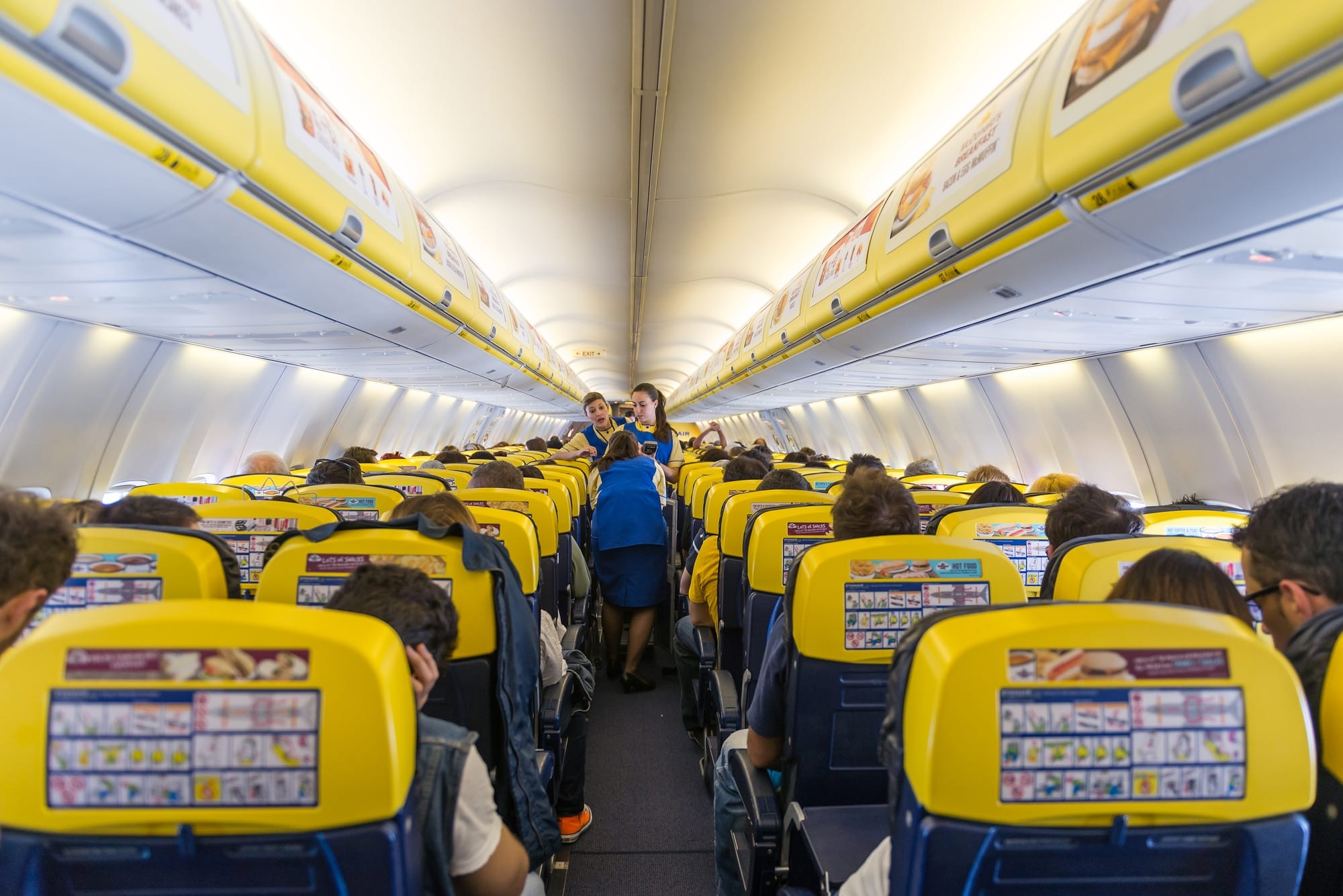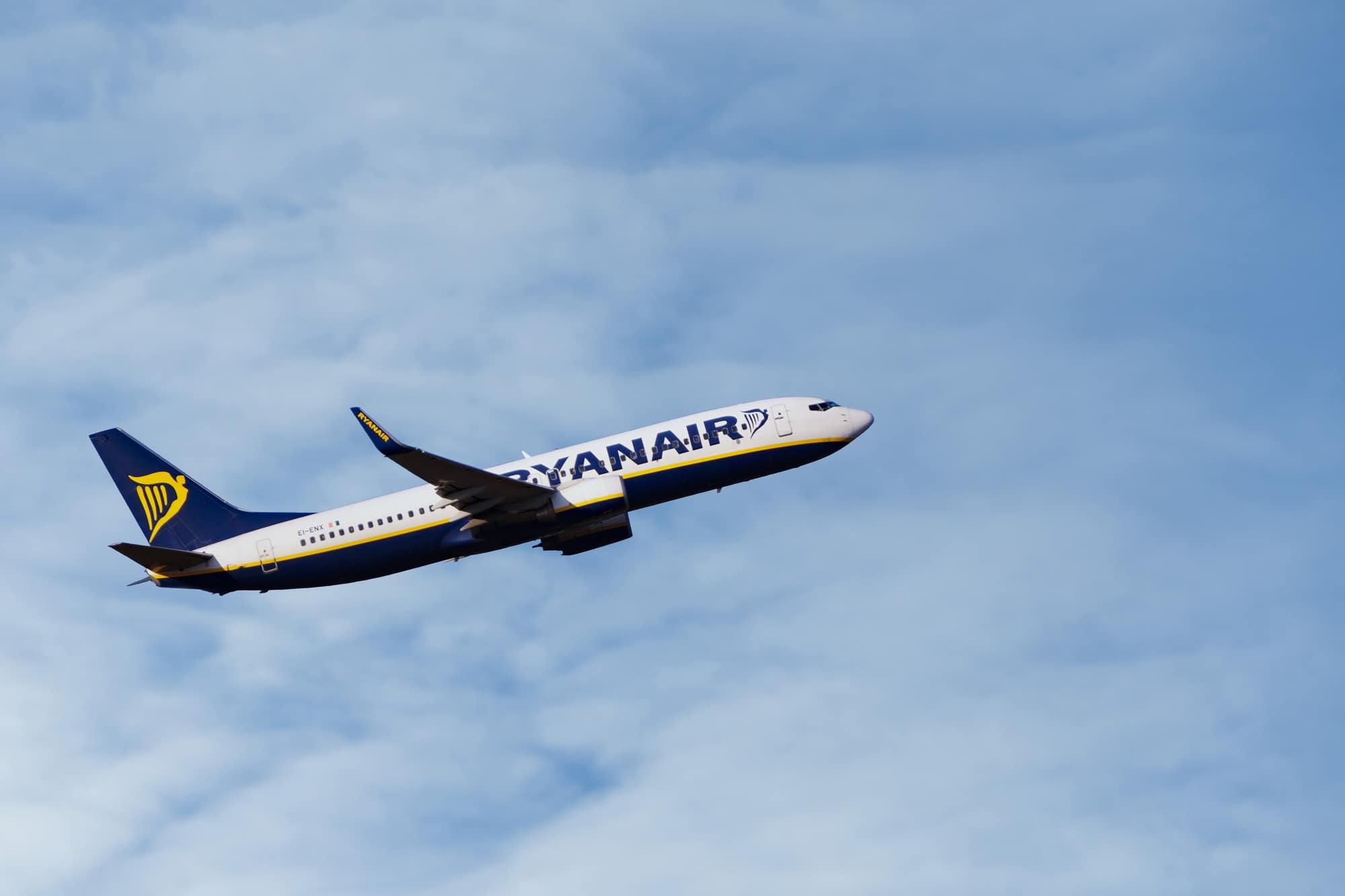Irish airline Ryanair DAC, headquartered in Dublin, is the biggest low-cost airline in Europe. It operates from 84 bases across 35 countries from Continental Europe like Ireland and the United Kingdom to North Africa. In this Ryanair PESTLE analysis, we'll investigate the six macroenvironmental factors that are most crucial for the airline.
Ryanair PESTLE Analysis: POLITICAL
With Ryanair’s wide scope of operations, it follows international treaties such as the Warsaw Convention, the Hague Convention, and the Vienna Protocol.
The transport giant is also expected to abide by numerous travel, customs, and aviation rules imposed in each of its country destinations. Most crucial of these today are rules relating to travel restrictions adopted by governments to combat the coronavirus pandemic.
Upon the advice of health authorities, countries all over the world have adopted travel and tourism restrictions to contain the spread of the virus. Very few countries kept their borders open, and those that did only do so to permit essential travel. Most countries have imposed strict international travel bans, causing a huge blow to the tourism industry in general.

Even among borders that permit travel, quarantine regulations also cause challenges for the airline. In Europe, for example, travelers from twenty-one destinations are subject to a 14-day quarantine which deters the already few number of people still willing to travel. This significantly prohibits leisure and personal travel, which accounts for over 80-percent of passengers per year.
As the pandemic plays out, movement restrictions will largely depend on directives from each country’s government. Ryanair must keep itself abreast of these changes to avoid operation delays and losses. It’s especially important for the airline, with Italy’s civil aviation authority (ENAC) having once warned them of operation suspension in the country. This was due to allegations that the carrier did not comply with social distancing protocols for passengers, a claim Ryanair has denied.
Ryanair PESTLE Analysis: ECONOMIC
International travel restrictions have caused an immense drop in passengers. The International Civil Aviation Organization, a UN specialized agency, reports that the aviation industry will lose US$399b by the end of 2020. This will continue through 2021, with projected losses of approximately US$90b in the first quarter of 2021.
Ryanair, in particular, has already suffered a 99 percent drop in passengers from April to June of this year after travel bans have been imposed. As a result of this drop, the airline declared a net loss of approximately US$217m. The impact of this loss has been devastating with Ryanair announcing that it needs to furlough 3,000 jobs—or 15-percent of its workforce—to cut losses. To minimize more layoffs, the transport company is also planning to reduce pay by 20-percent.
After travel restrictions started lifting, Ryanair initially hoped to resume at least 70-percent of its operations before the pandemic hit but continued and frequent reinstatement of travel restrictions kept them from pushing through with this plan. As a result, they continue to suffer economic deficits and cuts to their human resources.
The decline of international travel caused Ryanair’s shares to fall 7.6-percent. Improvement might not be likely with the current global economic situation remaining volatile due to infection spikes and movement restrictions that follow them.
The airline will continue to face economic setbacks in the coming months or years, as forecasts on the industry's full recovery will likely happen in 2022 or as late as 2023.

Ryanair PESTLE Analysis: SOCIAL
The target markets for airlines are business and leisure travelers. With some countries slowly opening their borders to international travelers, tourists are beginning to book flights for vacations and holidays.
Business travel, on the other hand, hasn't yet resumed. It’s not expected to do so until there's more assurance of convenience and safety for passengers. These assurances would be the significant decrease of infections, lifting of quarantine protocols, and the availability of vaccines. As these are unlikely to happen anytime soon based on current trends, it will take a while before the carrier will recover its losses.
Business travelers, while only accounting for 12-percent of airline passengers, usually generate 75-percent of the profits. This is because they are more willing to book pricey last-minute flights and opt for premium section seats. They are also frequent flyers and more likely to avail of incentive programs, which are lucrative for airline companies.
Without business travel resuming, the airline is not likely to recover easily from its current economic setbacks.
Ryanair PESTLE Analysis: TECHNOLOGY
Despite economic losses, Ryanair is still looking ahead. The carrier is preparing for a post-pandemic economy when there will be an expected surge in-flight demands. They are planning to close a purchase deal of Boeing 737 MAX jets worth US$17b by November 2020. Ryanair expects to operate the first 30-40 of these jets by the summer of 2021.
These new acquisitions will put Ryanair ahead of competitors, but the current political and economical milieu is still dependent on health measures at this point. The success and survival of the airline are still dependent on the global public health situation.

Ryanair PESTLE Analysis: LEGAL
Ryanair initially questioned the impositions of travel restrictions by the Irish government. They argued that the 14-day movement restriction of travelers entering the Irish State, and the advice against non-essential travel, are unlawful. The High Court of Ireland dismissed Ryanair's claims and upheld the travel advice and the movement restriction, reasoning that the movement restrictions on travelers are merely advice.
Before the pandemic, Ryanair also faced court actions in 2018 and 2019 due to labor complaints. Pilots and cabin crew based in Spain, Portugal, and Ireland staged strikes protesting against their poor pay and work conditions. To prevent further work interruptions, the carrier recognized unions for the first time and reached agreements with them. However, no absolute concessions were made.
Ryanair’s labor and employment problems could worsen as the airline enforces planned job cuts and pay reductions in light of the pandemic.
Ryanair PESTLE Analysis: ENVIRONMENTAL
The transportation business accounts for the largest contribution to greenhouse gas emissions. Transportation alone is responsible for 28.2-percent of all greenhouse gas emissions. This is primarily caused by the burning of fossil fuels for cars, trucks, trains, and planes. As a result, the airline industry has been heavily criticized for its continued massive carbon footprint.
The airline was also previously criticized for claiming that they are the greenest, lowest carbon-emitting carrier in Europe via advertisements. The Advertising Standards Agency ruled that such advertisements were misleading, as they didn’t present supporting evidence of their claims.
Ryanair has responded to this by committing to reducing carbon emissions through its Carbon Offset Initiative. Through this initiative, the carrier will ask passengers to pay a €2 carbon offset fee if they wish to reduce their flight’s carbon impact. The carrier commits to spending the funds on environmental projects such as reforestation efforts.
The airline also vows to eliminate non-recyclable plastics on all flights by 2023. They've committed to using cutlery made of wooden and paper materials and have encouraged passengers to bring their own cups onboard.
While the airline maintains a sufficient financial capacity to stay afloat, and are even making plans to procure additional planes, the vitality of Ryanair will rely on the global progress in fighting the coronavirus epidemic.










